| Availability: | |
|---|---|
| Quantity: | |
| Product Name | n40 neodymium magnets |
| Material | Neodymium Magnet/Permanet Magnet |
| Size | Various kinds or according to customers' request |
| Shape | Disc, Block, Ring, Countersunk, Segment, Trapezoid, Irregular shapes are available, Or Customized Shapes |
| Grade | N35-N52, N35M-N50M, N33H-N48H, N30SH-N35SH and so on |
| Tolerance in size | +/-0.05 mm |
| Direction of magnetisation | Through the thickness or through the diameter |
| Applications | 1. Electronic areas: speakers, headphones, acoustics, sensors and so on. 2. Motor areas: generators, servo motors, micro-motors, vibration motors, elevator motor and so on. 3. Clean Tech Energy: Water flow enhancement, wind turbines. 4. Health care: MRI, medical treatment equipment. 5. Other industries: electric doors and windows, electric vehicle, electric bicycles, computer, phone, boxes, magnetic tools, notebook and so on |
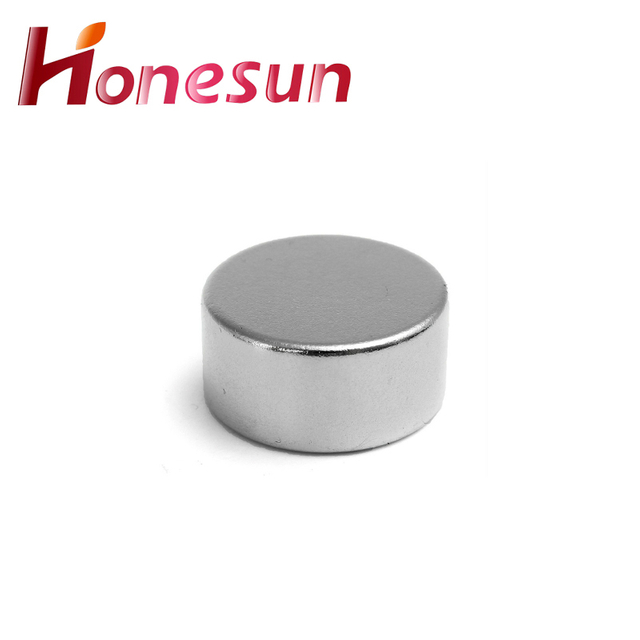
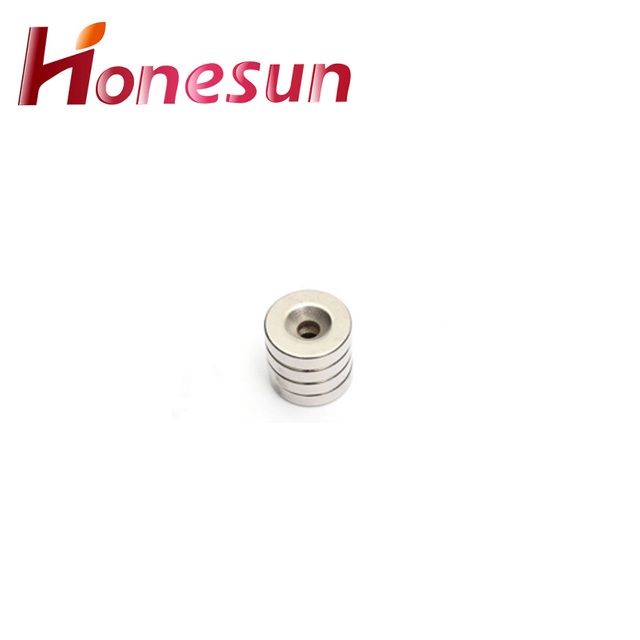
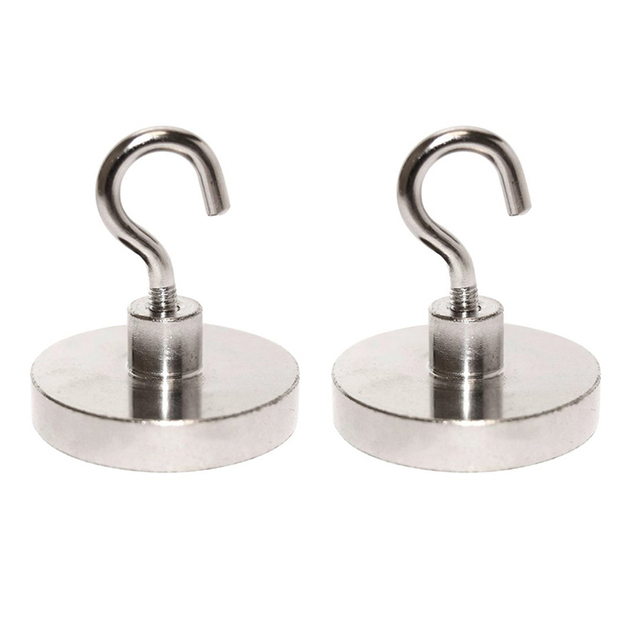
1.How do you recycle n40 neodymium magnets?
We focus on our customers' needs and strive to meet their expectations, so we take this very seriously. Neodymium magnets are not typically recycled, as they are made from rare earth metals and are difficult to separate and process. It is best to reuse them or donate them to a local school or organization that can use them.
2.What are the limitations of using n40 neodymium magnets?
As one of the top n40 neodymium magnets manufacturers in China, we take this very seriously. 1. Neodymium magnets are brittle and can easily break or chip if dropped or handled roughly. 2. Neodymium magnets can corrode if exposed to moisture or other corrosive elements. 3. Neodymium magnets can be difficult to machine and require special tools and techniques. 4. Neodymium magnets can be difficult to demagnetize and require special tools and techniques. 5. Neodymium magnets can be expensive compared to other types of magnets.
3.About n40 neodymium magnets production management system
Neodymium magnets production management system is a software solution designed to help manufacturers of neodymium magnets manage their production processes. The system provides a comprehensive set of tools to help streamline production, from tracking orders and inventory to managing quality control and production scheduling. It also provides detailed reporting and analytics to help manufacturers make informed decisions about their production processes. The system is designed to be user-friendly and intuitive, allowing users to quickly and easily access the information they need.
4.Can n40 neodymium magnets be used in underwater applications?
Our mission is to provide customers with the best solutions for n40 neodymium magnets. Yes, neodymium magnets can be used in underwater applications. However, they must be coated with a protective material such as nickel or epoxy to prevent corrosion.
5.Can n40 neodymium magnets be used in high-temperature environments?
Our n40 neodymium magnets products undergo strict quality control to ensure customer satisfaction. No, neodymium magnets are not suitable for use in high-temperature environments. They can become permanently demagnetized if exposed to temperatures above their Curie temperature, which is typically around 80-200°C (176-392°F).
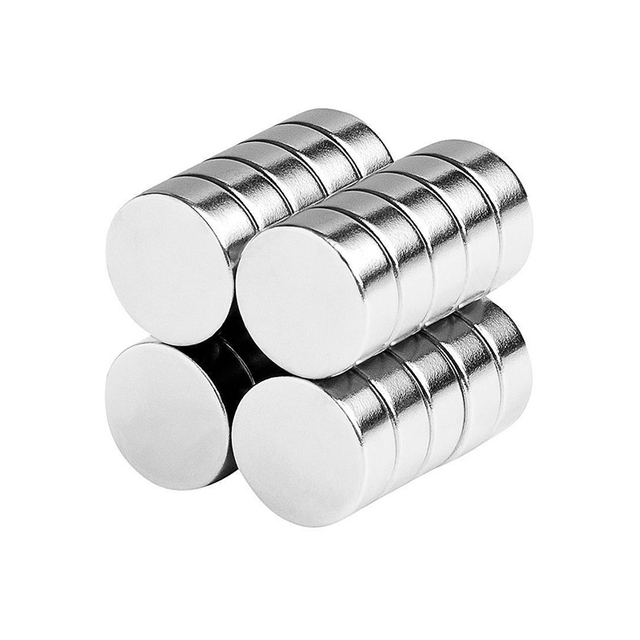
6.What types of coatings are used on n40 neodymium magnets?
Our mission is to provide customers with the best solutions for n40 neodymium magnets. Neodymium magnets are typically coated with a protective layer of nickel, copper, or zinc. Nickel plating provides the best corrosion resistance, while copper plating provides the best electrical conductivity. Zinc plating is the most economical option and provides good corrosion resistance.
7.Are there any ethical concerns regarding the use of n40 neodymium magnets?
Yes, there are ethical concerns regarding the use of Neodymium Magnets. Neodymium magnets are powerful and can cause serious injury if swallowed. They can also interfere with medical devices such as pacemakers and defibrillators. Additionally, Neodymium magnets can be dangerous if used in the wrong way, such as when used to create a powerful magnetic field. Finally, Neodymium magnets can be hazardous to the environment if not disposed of properly.
8.How do n40 neodymium magnets work?
We have established a good reputation and reliable partnerships within the n40 neodymium magnets industry. Neodymium magnets are permanent magnets made from an alloy of neodymium, iron, and boron. They are the strongest type of permanent magnet available and are used in a variety of applications. Neodymium magnets work by creating a strong magnetic field that attracts ferromagnetic materials, such as iron, nickel, and cobalt. The magnetic field is created when the electrons in the atoms of the neodymium alloy align in the same direction. This alignment creates a strong magnetic field that can attract ferromagnetic materials from a distance.
9.About n40 neodymium magnets R&D capabilities
Neodymium magnets are a type of rare earth magnet that is composed of an alloy of neodymium, iron, and boron. They are the strongest type of permanent magnet available and are used in a wide range of applications, from consumer electronics to industrial machinery. Neodymium magnets are highly resistant to demagnetization and have a high coercivity, making them ideal for applications that require a strong magnetic field. Neodymium magnets are typically produced through a process of powder metallurgy, which involves mixing the alloy components together and then pressing them into a mold. The resulting magnets are then heat-treated to increase their coercivity and strength. Research and development of neodymium magnets is ongoing, with new alloys and manufacturing processes being developed to improve the performance of these magnets. Research is also being conducted into new applications for neodymium magnets, such as in medical imaging and renewable energy technologies.
10.What are the pros and cons of using n40 neodymium magnets?
We have established long-term and stable partnerships with our suppliers, so we have great advantages in price and cost and quality assurance. Pros: - Neodymium magnets are extremely strong and can hold a large amount of weight. - They are very versatile and can be used in a variety of applications. - They are relatively inexpensive and easy to find. - They are corrosion-resistant and can withstand extreme temperatures. Cons: - Neodymium magnets are brittle and can easily break if dropped or mishandled. - They can be dangerous if swallowed, as they can cause serious internal damage. - They can be difficult to work with due to their strength. - They can be expensive depending on the size and grade of the magnet.
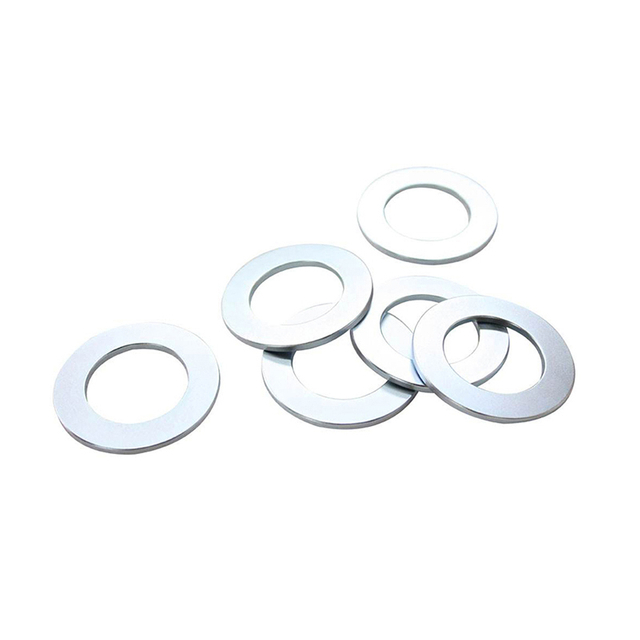
11.What are the potential future advances in Neodymium Magnet technology?
1. Improved magnetization processes: Developing new methods to increase the magnetization of neodymium magnets, such as using high-frequency alternating current or pulsed direct current, could lead to stronger magnets. 2. Improved coating processes: Developing new methods to coat neodymium magnets with protective layers could help to reduce corrosion and improve the longevity of the magnets. 3. Improved manufacturing processes: Developing new methods to manufacture neodymium magnets more efficiently and cost-effectively could help to reduce the cost of the magnets. 4. Improved recycling processes: Developing new methods to recycle neodymium magnets could help to reduce the environmental impact of the magnets. 5. Improved magnetic field control: Developing new methods to control the magnetic field of neodymium magnets could help to improve the performance of the magnets in various applications.
12.What makes n40 neodymium magnets different from other types of magnets?
We are a professional n40 neodymium magnets company dedicated to providing high quality products and services. Neodymium magnets are the strongest type of permanent magnet available. They are made from an alloy of neodymium, iron, and boron and are much stronger than other types of magnets, such as ceramic or alnico magnets. Neodymium magnets are also more resistant to demagnetization than other types of magnets, making them ideal for applications where a strong, permanent magnet is needed.
13.What is the manufacturing process for n40 neodymium magnets?
Our n40 neodymium magnets products undergo strict quality control to ensure customer satisfaction. 1. Raw Material Preparation: Neodymium magnets are made from an alloy of neodymium, iron, and boron. The raw materials are melted together in a vacuum induction furnace to create a homogenous alloy. 2. Compacting: The molten alloy is then poured into a die and compacted under high pressure to form a solid block. 3. Sintering: The compacted block is then heated in a vacuum furnace to sinter the material, which increases its strength and magnetic properties. 4. Machining: The sintered block is then machined into the desired shape and size. 5. Magnetizing: The machined magnet is then magnetized by exposing it to a strong magnetic field. This process aligns the magnetic domains within the material, creating a permanent magnet.
14.How do you demagnetize a Neodymium Magnet?
We focus on teamwork and communication to achieve common goals, We attach great importance to this detail. Neodymium magnets can be demagnetized by heating them to a temperature of around 200°C (392°F) for a few minutes. This will cause the magnet to lose its magnetic properties. It is also possible to demagnetize a neodymium magnet by exposing it to a strong alternating magnetic field.
15.How are n40 neodymium magnets used in magnetic resonance imaging (MRI)?
Neodymium magnets are used in MRI machines to create a strong magnetic field that is used to align the hydrogen atoms in the body. This alignment allows the MRI machine to detect the signals from the hydrogen atoms and create detailed images of the body. The strong magnetic field also helps to reduce the amount of time it takes to acquire the images.
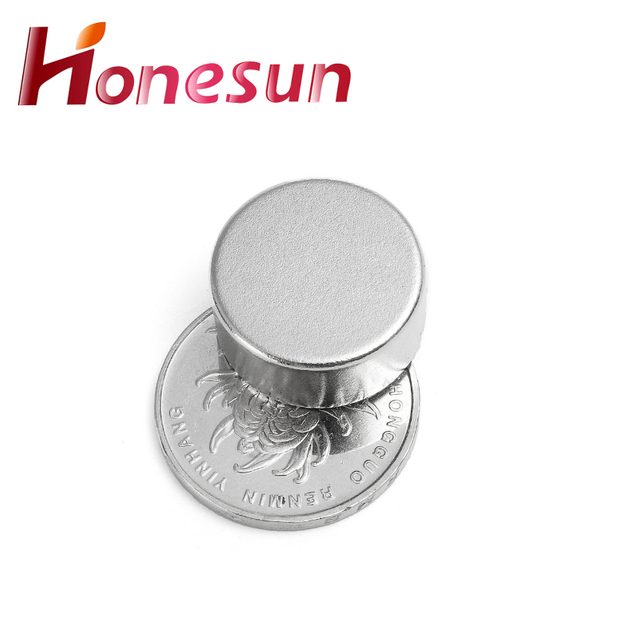
16.How do n40 neodymium magnets improve efficiency in machines and devices?
Neodymium magnets are used in many machines and devices to improve efficiency. They are used to create strong magnetic fields that can be used to generate electricity, control the flow of fluids, and create motion. In electric motors, neodymium magnets are used to create a strong magnetic field that interacts with the electric current to create motion. In generators, neodymium magnets are used to create a strong magnetic field that interacts with the electric current to generate electricity. In pumps, neodymium magnets are used to create a strong magnetic field that interacts with the fluid to control the flow of the fluid. Neodymium magnets are also used in sensors to detect changes in magnetic fields.
| Product Name | n40 neodymium magnets |
| Material | Neodymium Magnet/Permanet Magnet |
| Size | Various kinds or according to customers' request |
| Shape | Disc, Block, Ring, Countersunk, Segment, Trapezoid, Irregular shapes are available, Or Customized Shapes |
| Grade | N35-N52, N35M-N50M, N33H-N48H, N30SH-N35SH and so on |
| Tolerance in size | +/-0.05 mm |
| Direction of magnetisation | Through the thickness or through the diameter |
| Applications | 1. Electronic areas: speakers, headphones, acoustics, sensors and so on. 2. Motor areas: generators, servo motors, micro-motors, vibration motors, elevator motor and so on. 3. Clean Tech Energy: Water flow enhancement, wind turbines. 4. Health care: MRI, medical treatment equipment. 5. Other industries: electric doors and windows, electric vehicle, electric bicycles, computer, phone, boxes, magnetic tools, notebook and so on |



1.How do you recycle n40 neodymium magnets?
We focus on our customers' needs and strive to meet their expectations, so we take this very seriously. Neodymium magnets are not typically recycled, as they are made from rare earth metals and are difficult to separate and process. It is best to reuse them or donate them to a local school or organization that can use them.
2.What are the limitations of using n40 neodymium magnets?
As one of the top n40 neodymium magnets manufacturers in China, we take this very seriously. 1. Neodymium magnets are brittle and can easily break or chip if dropped or handled roughly. 2. Neodymium magnets can corrode if exposed to moisture or other corrosive elements. 3. Neodymium magnets can be difficult to machine and require special tools and techniques. 4. Neodymium magnets can be difficult to demagnetize and require special tools and techniques. 5. Neodymium magnets can be expensive compared to other types of magnets.
3.About n40 neodymium magnets production management system
Neodymium magnets production management system is a software solution designed to help manufacturers of neodymium magnets manage their production processes. The system provides a comprehensive set of tools to help streamline production, from tracking orders and inventory to managing quality control and production scheduling. It also provides detailed reporting and analytics to help manufacturers make informed decisions about their production processes. The system is designed to be user-friendly and intuitive, allowing users to quickly and easily access the information they need.
4.Can n40 neodymium magnets be used in underwater applications?
Our mission is to provide customers with the best solutions for n40 neodymium magnets. Yes, neodymium magnets can be used in underwater applications. However, they must be coated with a protective material such as nickel or epoxy to prevent corrosion.
5.Can n40 neodymium magnets be used in high-temperature environments?
Our n40 neodymium magnets products undergo strict quality control to ensure customer satisfaction. No, neodymium magnets are not suitable for use in high-temperature environments. They can become permanently demagnetized if exposed to temperatures above their Curie temperature, which is typically around 80-200°C (176-392°F).

6.What types of coatings are used on n40 neodymium magnets?
Our mission is to provide customers with the best solutions for n40 neodymium magnets. Neodymium magnets are typically coated with a protective layer of nickel, copper, or zinc. Nickel plating provides the best corrosion resistance, while copper plating provides the best electrical conductivity. Zinc plating is the most economical option and provides good corrosion resistance.
7.Are there any ethical concerns regarding the use of n40 neodymium magnets?
Yes, there are ethical concerns regarding the use of Neodymium Magnets. Neodymium magnets are powerful and can cause serious injury if swallowed. They can also interfere with medical devices such as pacemakers and defibrillators. Additionally, Neodymium magnets can be dangerous if used in the wrong way, such as when used to create a powerful magnetic field. Finally, Neodymium magnets can be hazardous to the environment if not disposed of properly.
8.How do n40 neodymium magnets work?
We have established a good reputation and reliable partnerships within the n40 neodymium magnets industry. Neodymium magnets are permanent magnets made from an alloy of neodymium, iron, and boron. They are the strongest type of permanent magnet available and are used in a variety of applications. Neodymium magnets work by creating a strong magnetic field that attracts ferromagnetic materials, such as iron, nickel, and cobalt. The magnetic field is created when the electrons in the atoms of the neodymium alloy align in the same direction. This alignment creates a strong magnetic field that can attract ferromagnetic materials from a distance.
9.About n40 neodymium magnets R&D capabilities
Neodymium magnets are a type of rare earth magnet that is composed of an alloy of neodymium, iron, and boron. They are the strongest type of permanent magnet available and are used in a wide range of applications, from consumer electronics to industrial machinery. Neodymium magnets are highly resistant to demagnetization and have a high coercivity, making them ideal for applications that require a strong magnetic field. Neodymium magnets are typically produced through a process of powder metallurgy, which involves mixing the alloy components together and then pressing them into a mold. The resulting magnets are then heat-treated to increase their coercivity and strength. Research and development of neodymium magnets is ongoing, with new alloys and manufacturing processes being developed to improve the performance of these magnets. Research is also being conducted into new applications for neodymium magnets, such as in medical imaging and renewable energy technologies.
10.What are the pros and cons of using n40 neodymium magnets?
We have established long-term and stable partnerships with our suppliers, so we have great advantages in price and cost and quality assurance. Pros: - Neodymium magnets are extremely strong and can hold a large amount of weight. - They are very versatile and can be used in a variety of applications. - They are relatively inexpensive and easy to find. - They are corrosion-resistant and can withstand extreme temperatures. Cons: - Neodymium magnets are brittle and can easily break if dropped or mishandled. - They can be dangerous if swallowed, as they can cause serious internal damage. - They can be difficult to work with due to their strength. - They can be expensive depending on the size and grade of the magnet.

11.What are the potential future advances in Neodymium Magnet technology?
1. Improved magnetization processes: Developing new methods to increase the magnetization of neodymium magnets, such as using high-frequency alternating current or pulsed direct current, could lead to stronger magnets. 2. Improved coating processes: Developing new methods to coat neodymium magnets with protective layers could help to reduce corrosion and improve the longevity of the magnets. 3. Improved manufacturing processes: Developing new methods to manufacture neodymium magnets more efficiently and cost-effectively could help to reduce the cost of the magnets. 4. Improved recycling processes: Developing new methods to recycle neodymium magnets could help to reduce the environmental impact of the magnets. 5. Improved magnetic field control: Developing new methods to control the magnetic field of neodymium magnets could help to improve the performance of the magnets in various applications.
12.What makes n40 neodymium magnets different from other types of magnets?
We are a professional n40 neodymium magnets company dedicated to providing high quality products and services. Neodymium magnets are the strongest type of permanent magnet available. They are made from an alloy of neodymium, iron, and boron and are much stronger than other types of magnets, such as ceramic or alnico magnets. Neodymium magnets are also more resistant to demagnetization than other types of magnets, making them ideal for applications where a strong, permanent magnet is needed.
13.What is the manufacturing process for n40 neodymium magnets?
Our n40 neodymium magnets products undergo strict quality control to ensure customer satisfaction. 1. Raw Material Preparation: Neodymium magnets are made from an alloy of neodymium, iron, and boron. The raw materials are melted together in a vacuum induction furnace to create a homogenous alloy. 2. Compacting: The molten alloy is then poured into a die and compacted under high pressure to form a solid block. 3. Sintering: The compacted block is then heated in a vacuum furnace to sinter the material, which increases its strength and magnetic properties. 4. Machining: The sintered block is then machined into the desired shape and size. 5. Magnetizing: The machined magnet is then magnetized by exposing it to a strong magnetic field. This process aligns the magnetic domains within the material, creating a permanent magnet.
14.How do you demagnetize a Neodymium Magnet?
We focus on teamwork and communication to achieve common goals, We attach great importance to this detail. Neodymium magnets can be demagnetized by heating them to a temperature of around 200°C (392°F) for a few minutes. This will cause the magnet to lose its magnetic properties. It is also possible to demagnetize a neodymium magnet by exposing it to a strong alternating magnetic field.
15.How are n40 neodymium magnets used in magnetic resonance imaging (MRI)?
Neodymium magnets are used in MRI machines to create a strong magnetic field that is used to align the hydrogen atoms in the body. This alignment allows the MRI machine to detect the signals from the hydrogen atoms and create detailed images of the body. The strong magnetic field also helps to reduce the amount of time it takes to acquire the images.

16.How do n40 neodymium magnets improve efficiency in machines and devices?
Neodymium magnets are used in many machines and devices to improve efficiency. They are used to create strong magnetic fields that can be used to generate electricity, control the flow of fluids, and create motion. In electric motors, neodymium magnets are used to create a strong magnetic field that interacts with the electric current to create motion. In generators, neodymium magnets are used to create a strong magnetic field that interacts with the electric current to generate electricity. In pumps, neodymium magnets are used to create a strong magnetic field that interacts with the fluid to control the flow of the fluid. Neodymium magnets are also used in sensors to detect changes in magnetic fields.
Honesun Industrial Co., Ltd. focuses on designing, researching, developing, manufacturing and selling Magnets and Magnetic Assemblies. With more than 15 years' rich experience and considerate services.we have been recognized as a reliable.



